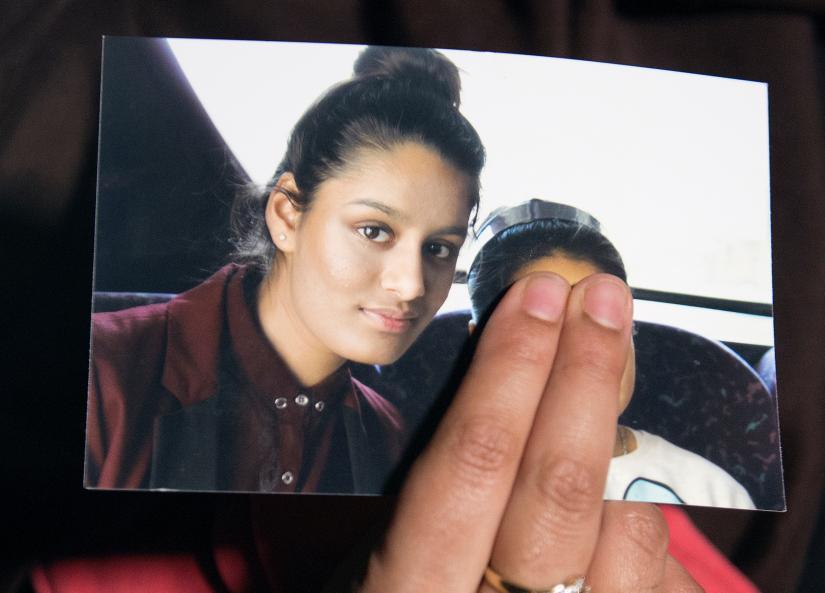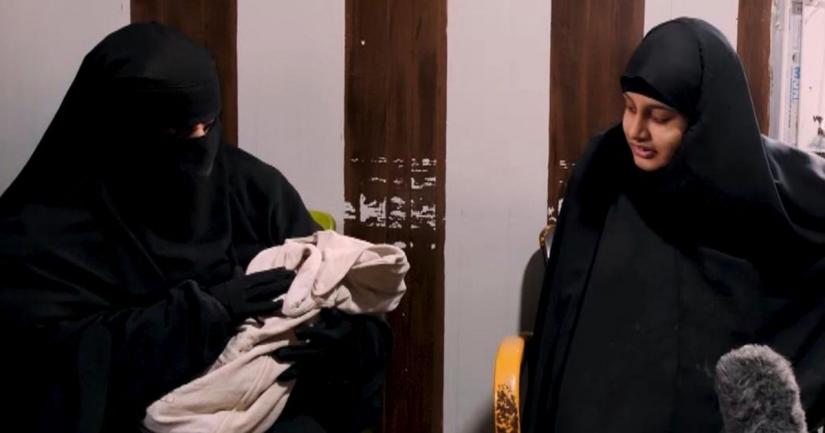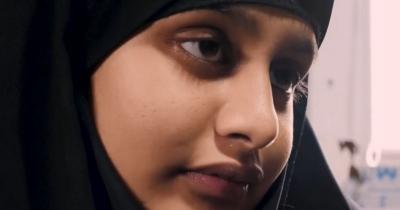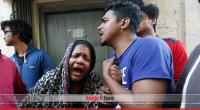 The British and Bangladeshi governments are locked in a diplomatic stand-off over the citizenship prospects of Shamima Begum, the UK-born schoolgirl who fled to join the Islamic State (ISIS) terrorist group as a 15-year-old from London four years ago.
The British and Bangladeshi governments are locked in a diplomatic stand-off over the citizenship prospects of Shamima Begum, the UK-born schoolgirl who fled to join the Islamic State (ISIS) terrorist group as a 15-year-old from London four years ago.
Begum, now a 19-year-old new mother to a baby boy in a Syrian refugee camp, was stripped of her British citizenship by the UK government, which believes she is eligible for Bangladeshi nationality due to her parents’ origins in the South Asian nation.
However, Dhaka has since intervened to categorically deny any possibility of Begum being allowed into Bangladesh, opening up a diplomatic row with the UK. Bangladesh has also objected to the fact that it heard about Begum's supposed dual nationality only when the case hit the headlines, rather than at an inter-governmental level.
UK Home Secretary Sajid Javid seemed to confirm Begum's dual nationality on Wednesday when he insisted in a television interview that the UK government’s action would not leave Begum “stateless”, which is forbidden by law.
"I'm not aware of any home secretary in any party in any previous government that has taken a decision that would leave anyone stateless," he said. “My number one job is to do whatever I can to keep this country safe.”
Earlier, Javid had told the House of Commons that the rights of Begum's son were unaffected by his mother's loss of citizenship, saying that "children should not suffer".
"So, if a parent does lose their British citizenship, it does not affect the rights of their child," he said.
Shahriar Alam, Bangladesh state minister for foreign affairs, took to Twitter to say: “Shamima Begum who joined IS is not a citizen of Bangladesh.” A statement from the ministry, which said it operated a “zero tolerance” policy on terrorism, declared: “The government of Bangladesh is deeply concerned that she [Begum] has been erroneously identified as a holder of dual citizenship shared with Bangladesh alongside her birthplace, the United Kingdom.
A statement from the ministry, which said it operated a “zero tolerance” policy on terrorism, declared: “The government of Bangladesh is deeply concerned that she [Begum] has been erroneously identified as a holder of dual citizenship shared with Bangladesh alongside her birthplace, the United Kingdom.
“Bangladesh asserts that Ms Shamima Begum is not a Bangladeshi citizen. She is a British citizen by birth and never applied for dual nationality with Bangladesh.
"It may also be mentioned that she never visited Bangladesh in the past despite her parental lineage. So, there is no question of her being allowed to enter into Bangladesh.”
The firm stand leaves the two countries in a face-off over interpretations of immigration law. Some reports indicate that Begum’s father is currently living in Bangladesh and with her mother also from that country, the teenager has the automatic right to dual citizenship until the of age of 21.
Once she turns 21, she would have the right to turn down the possibility of formally applying for dual nationality. However, with Bangladesh refusing to acknowledge the criteria in this case, the possibility of Begum's entry into the country remains uncertain.
Meanwhile, Begum herself has expressed her own doubts over a Bangladeshi nationality as her family’s lawyer Tasnime Akunjee prepares to mount a legal challenge over the revocation of her British citizenship.
“I have one citizenship … and if you take that away from me, I don’t have anything. I don’t think they are allowed to do that,” Begum said from the refugee camp in Syria, indicating that another option for her might be to try and ask for citizenship in the Netherlands. “My husband is from Holland and he has family in Holland. Maybe I can ask for citizenship in Holland,” she said.
“My husband is from Holland and he has family in Holland. Maybe I can ask for citizenship in Holland,” she said.
However, the Netherlands has ruled out such an action, saying Begum would not qualify for Dutch nationality as she did not possess the required documents and its own stringent terrorism laws would prevent her entry into the European country.
“Foreign fighters with two (or more) nationalities, who are deemed a threat to Holland's national security can also have their Dutch citizenship and passport revoked,” the Dutch government said.
The British Nationality Act 1981 provides the home secretary with the power to strip people of citizenship if it is "conducive to the public good".
However, the minister can take such an action only if the individual has the prospect of an alternate citizenship.
The Opposition Labour Party has warned against the “arbitrary” decision to deprive Begum of her citizenship rights and pointed out that the UK government had been defeated in two previous cases where it had similarly sought to strip citizenship from people on the basis that, having Bangladeshi parents, they were themselves citizens of that country.
 Others
Others
31108 hour(s) 42 minute(s) ago ;
Evening 11:37 ; Saturday ; May 04, 2024
Dhaka, London in diplomatic row over Shamima’s citizenship
Send
Aditi Khanna, London
Published : 00:38, Feb 22, 2019 | Updated : 00:42, Feb 22, 2019
Published : 00:38, Feb 22, 2019 | Updated : 00:42, Feb 22, 2019
0 ...0 ...
/zmi/
Topics: Top Stories
- KOICA donates medical supplies to BSMMU
- 5 more flights to take back British nationals to London
- Covid19: Rajarbagh, Mohammadpur worst affected
- Momen joins UN solidarity song over COVID-19 combat
- Covid-19: OIC to hold special meeting
- WFP begins food distribution in Cox’s Bazar
- WFP begins food distribution in Cox’s Bazar
- 290 return home to Australia
- Third charter flight for US citizens to return home
- Dhaka proposes to postpone D8 Summit
Unauthorized use of news, image, information, etc published by Bangla Tribune is punishable by copyright law. Appropriate legal steps will be taken by the management against any person or body that infringes those laws.
Bangla Tribune is one of the most revered online newspapers in Bangladesh, due to its reputation of neutral coverage and incisive analysis.
F R Tower, 8/C Panthapath, Shukrabad, Dhaka-1207 | Phone: 58151324; 58151326, Fax: 58151329 | Mob: 01730794527, 01730794528


